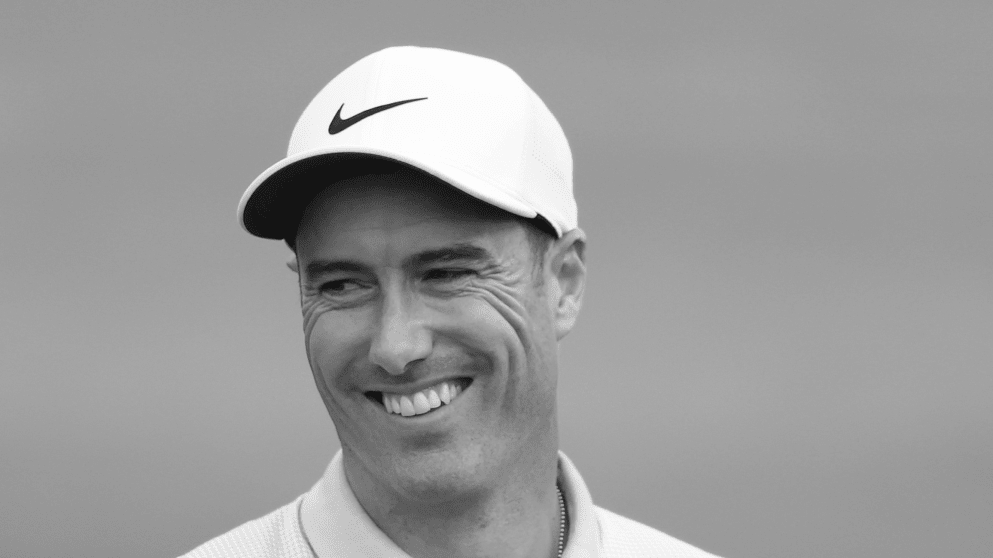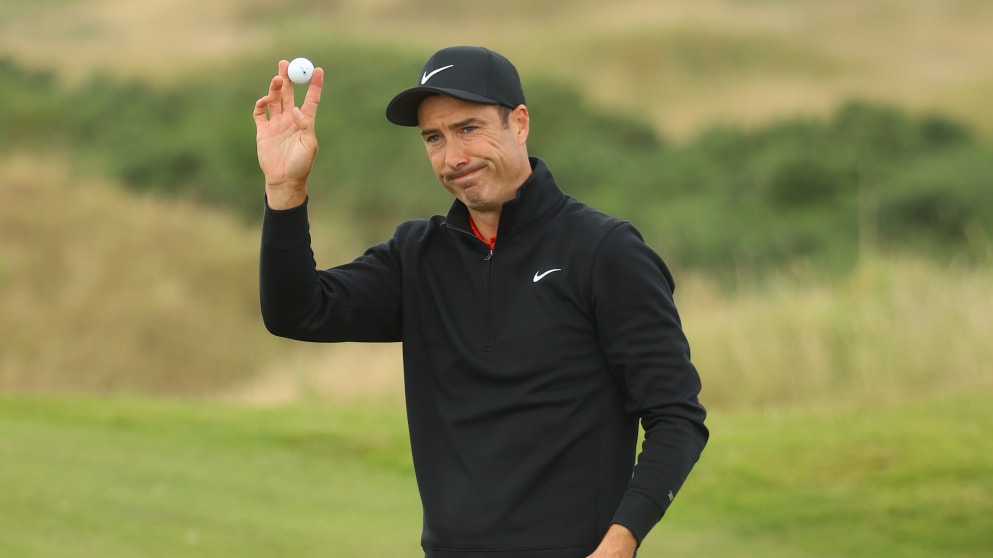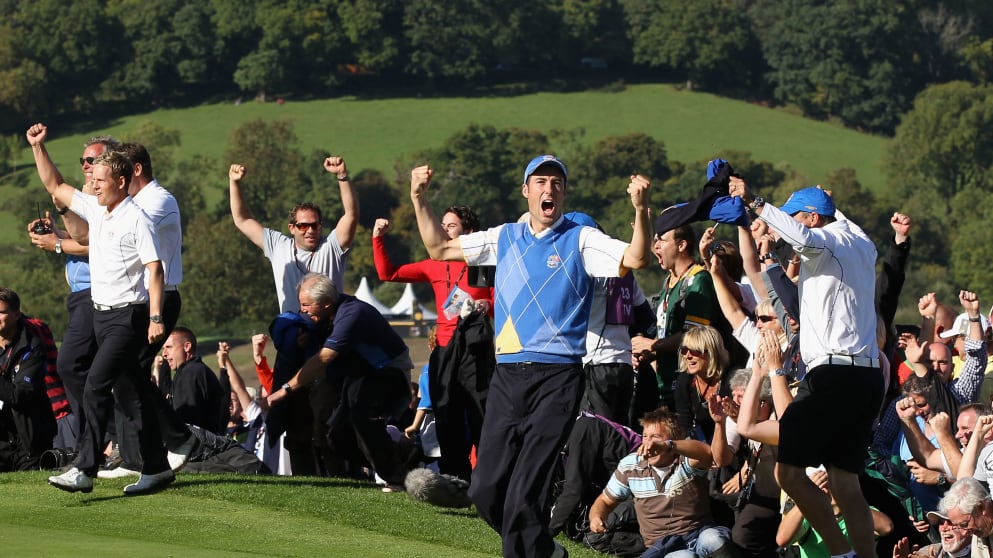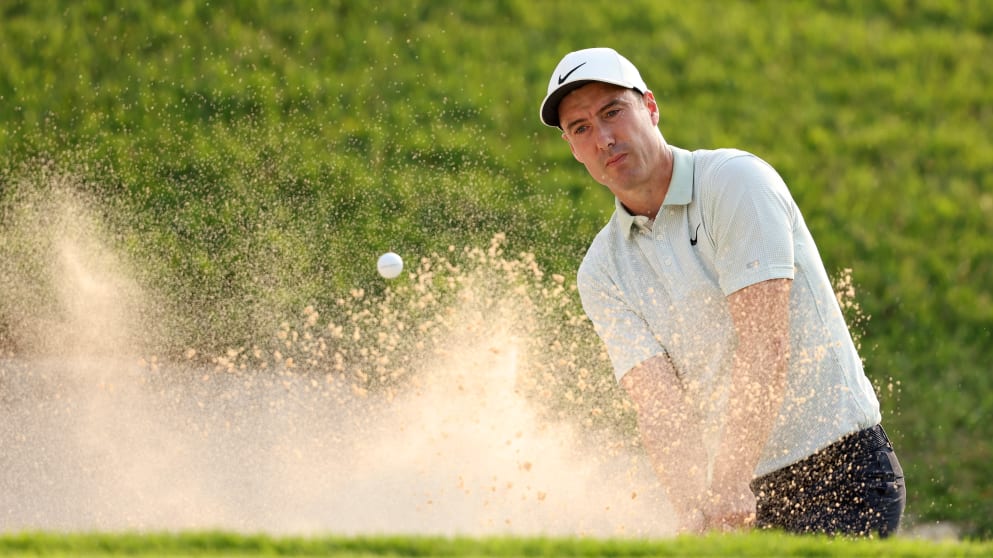In this week’s player blog presented by Enterprise Rent-A-Car, Ross Fisher reflects on the highs and lows of his career so far, working with a new psychologist, and what keeps him motivated.

It’s a bit surreal to take a step back and realise that in just a few more events I’ll have played 400 tournaments on the DP World Tour. It’s been quite a journey from the start of my career until now, and I definitely take a tremendous amount of pride in approaching a milestone like that. That’s a lot of golf, and a lot of successive seasons keeping my card, even with the obvious disappointment of just missing out last year. But I’ve no intention of stopping anytime soon so hopefully I can continue for a few more years at least, and there’s still a lot of motivation there for me.
There’s also been a lot of lessons along the way. When you’ve been out here a long time, you go through a lot of ups and downs, and I don’t think you can underestimate how important resilience is in this game. It’s something I had to learn along the way, but it’s such an important part of being a professional because things aren’t always going to go your way. When I first came out on Tour at the end of 2005, I didn’t really know what to expect but I seemed to find my feet pretty early on. I contended and was in the last group on Sunday in my very first event, and then three weeks later I was leading after two rounds. I felt like I grasped life out here pretty quickly and progressed nicely, won some tournaments, got into the world’s top 20 and things were really, really good. But things can’t continually get better when you’re in a career that lasts this long, and you need to learn how to dig deep when things don’t go as well.

I think I suffered from a little bit of Ryder Cup-itis earlier in my career. It happens to a lot of rookies, who experience the incredible atmosphere and achievement of playing in a Ryder Cup, and then struggle when they come back to regular tournaments because they feel flat in comparison. It had been one of my biggest goals as a professional, and afterwards there was part of me that felt like I’d achieved what I wanted to, and then I struggled to live up the expectation of what I believed I was capable of and had set for myself. My form slipped, I took time to get used to changing manufacturers, and it’s very easy to start questioning everything around you: Do I have the right team, am I working on the right things? It’s why mind-set and mental resilience are so important in this game, because you need to be able to push through and keep plugging away to be able to pick yourself back up… and hope your hard work pays off.
For me, coming back and playing events after the COVID break was actually a very similar feeling to that post Ryder Cup feeling, and I had to work through that too. I think when you’ve been out here for so long, suddenly playing in tournaments with less points at stake and without fans felt quite flat, and it was quite hard to get your mind around it and motivate yourself in a time like that. Events like the BMW PGA at Wentworth were so peculiar compared to what we’re used to, and I think in some ways it benefited the guys coming up as a way to get used to playing out here. I was definitely someone who found the UK Swing (the events after the four month pause in the 2020 season) difficult, but after those first six weeks I realised that I had to reassess how I was approaching it. The more I thought about it being weird or different the more it would hinder how I played, and I think the quicker I realised it was going to be the norm for some time, I knew I had to get on with it and get over it. So instead I just tried to have fun, and appreciate that we were able to play, but even this many years on it shows just how important – and fickle – your mind-set can be in this game.

In some ways, part of that is realising that at the end of the day, it’s just a game of golf. I think I’ve always been quite a positive person and had a positive outlook, but over the years I also think I’ve developed a relaxed mindset. When I first started I would put more pressure on myself because I wanted to succeed and achieve things, but now I take things much more in my stride. If things don’t go my way, I try and take the positives: maybe I played great but someone played better, or maybe this week wasn’t meant for me. I think it’s definitely helped, because I’m much better at grinding out a round in recent years. You’re not going to play your best every day, and where I might have let those bad days slip away to 74s or higher in the past, I’ve learnt how to respond a lot better and adapt my game when things aren’t going as well rather than forcing it.
It took me a while to learn, but getting the right mindset when you come out here is a big, big thing. I see so many young guys come out here and they are so desperate to compete that they think they immediately have to change everything from their swing to their coach to their equipment - and they don’t. If I had any advice to give to younger generations coming through now, it would be that if you’re already playing here, you’re good enough to be here, so don’t put as much pressure on yourself. Ultimately, if you enjoy being out here, that’s when you’re going to have fun and play well. It’s obviously our sport and how we make our living, but the more pressure you put on yourself, the more likely it is you’ll tighten up, struggle, and your mind will run away with thoughts on how you might pay for things. It’s why mind-set is so important, because as I’ve explained with the Ryder Cup and even Covid, it’s such a big part of how you can cause your own issues in your game.

You also go through a lot of transitions in your personal life as a professional golfer that can make an impact, and for me having a family was also something that had a positive impact mentally. It’s one of the biggest adjustments I’ve gone through in my career, but I know I couldn’t do what I do week in week out without a very supportive wife and two great kids. I’m very thankful that I’ve got a very understanding wife. When we got together she knew what she was getting into with my job and understands how tough it is, but it helps that we’ve got a fantastic relationship and a great steady family base. Obviously it was especially tough leaving very young kids who don’t want you to go, and even now my youngest Harry – who is 10 – will say ‘do you have to go?’. It’s part and parcel of it, and he knows it’s daddy’s job, but it does also make it all that more rewarding when you come home and can spend that time with them. It puts things in perspective: Whether I’ve had a good or bad week, I still come home and it’s ‘will you come outside and do this with me’. My kids don’t treat me any differently if I shoot 65 or 85, and I think having and balancing a family when you’re out here has been one of those great teachings for me about what is actually important.
My wife was actually part of the reason that I started working with a new psychologist towards the end of last year, and he’s given me a different outlook and a different perspective too. I used to come home and say I played well but things just aren’t happening, so my manager and my wife Jo felt like working with a psychologist might be the missing link in me kicking on, and I agreed it was worth exploring. I’d worked with a performance psychologist – Lee Crombleholme – before and he’d helped me a lot, but this is very different. Jerry is not a golfer at all, but he’s worked with a lot of top sports men and women – Olympians, Boxers and a golfer before – and he’s really made me think a bit differently on the course and in general life as well. I have some trigger words that I jot down in my yardage book just to look back on when things are going well or going badly, and I think that’s been a big factor in my change. We’ve only been working together for four or five months, but he’s made me think about things from a different perspective and I really feel like it’s helping me, so fingers crossed we can continue.
My @EuropeanTour season comes to an end early. Been a tough few years but my golfs not been good enough simple as! Gutted to miss R2D for the 1st time and not retaining my playing rights. Thank you to all the team who've helped me this year. Here's to a better 2022 @DP_World 💪🏻
— Ross Fisher (@RossFisher) November 12, 2021
The week at Pecanwood really gave me confidence that I’ve been working on the right things in my game. It was similar to when I was close in St. Andrews (in the final round of the 2017 Alfred Dunhill Links Championship), I didn’t actually realise I was close to a 59 last week. I knew I was playing well, but didn’t know my score until someone approached me on the seventh, because I don’t typically like to know my score until I’ve finished and I’m signing my card. After I made a birdie at seven I was going for the pin at eight and just slightly pulled my tee shot into the bunker and couldn’t save my par. I signed for a 62 which was disappointing, but after three weeks off it was good for the mindset and a positive to use this season.
Looking ahead a little further, I’m still very motivated by getting back into the winner’s circle, but also getting back to playing in the Majors. I was third reserve for the Open last year, and while it unfortunately didn’t work out, that really fuelled my hunger. There was a year where I had the title of the best player (cumulative score) across all four Majors, but I’ve missed them for a few years now, and I’d love to be back playing in front of those crowds. That added pressure it’s something I love about the game – and I’d really like to get back to playing an Open at somewhere like St Andrews where I’ve got a good history. I’ve got a bit of work for that to happen, but belief in yourself in your game is important, and I believe I’m working on the right things. And even though I’m almost at 400 events I still just love competing and playing the game like I have since I was three years old, and I’m still planning on being out here for some time
Well that was an awesome ride today #MyGolfLifeOpen @DPWorldTour . Game felt great today. Shame there was a bogey in there but I was flag hunting for 59 😁. Lovely start, early one tomorrow to keep the pedal down 💪🏻 pic.twitter.com/9RMBHaCGPs
— Ross Fisher (@RossFisher) March 10, 2022





